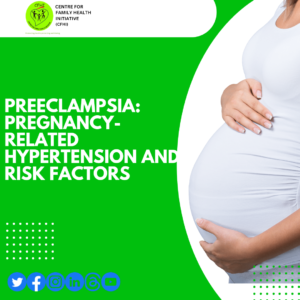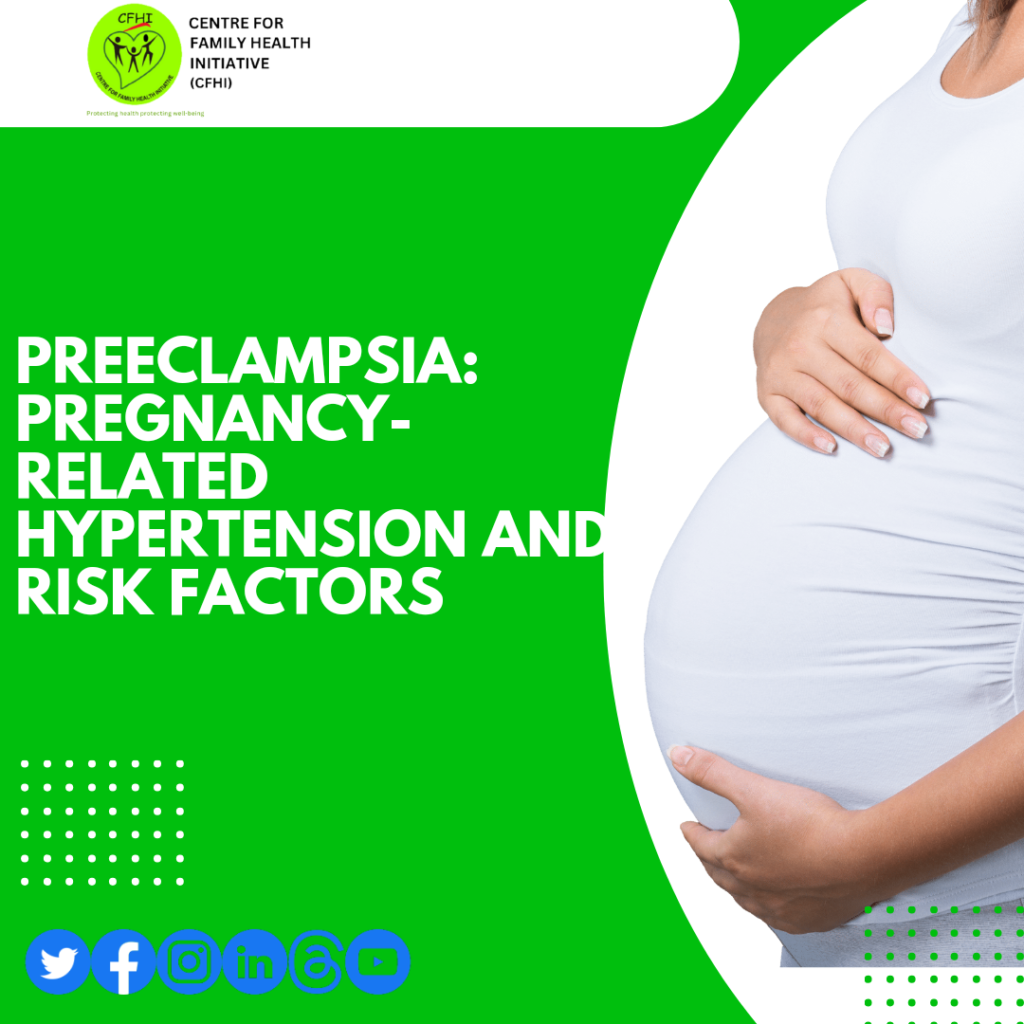Preeclampsia is high blood pressure and signs of liver or kidney damage that occur in women after the 20th week of pregnancy. While it is rare, preeclampsia also may occur in a woman after delivering her baby, most often within 48 hours. This is called postpartum preeclampsia.
According to MedlinePlus, the specific cause of preeclampsia is uncertain. It occurs in 3–7% of pregnancies. It is thought that the sickness originated in the placenta.
Preeclampsia can arise as a result of the following factors; Autoimmune conditions, issues with blood vessels, diet and Your genes.
Some risk factors associated with preeclampsia include:
First Pregnancy: Women who are pregnant for the first time have a higher risk.
Multiple Pregnancies: Women carrying twins or more are at increased risk.
History of Preeclampsia: A previous history of preeclampsia increases the risk in future pregnancies.
Family History: A family history of preeclampsia can also be a risk factor.
Chronic Hypertension: Having high blood pressure before pregnancy can increase the risk of preeclampsia.
Autoimmune Disorders: Conditions like lupus or antiphospholipid syndrome can raise the risk.
Diabetes: Pre-existing diabetes can contribute to the risk.
Obesity: Being significantly overweight before pregnancy increases the risk.
Age: Being younger than 20 or older than 40 increases the risk.
Assisted Reproductive Techniques: Women who have used in vitro fertilization (IVF) may have a higher risk.
Prior Pregnancy Complications: A history of other pregnancy complications, such as gestational diabetes or placental problems, can elevate the risk.
It’s important for pregnant women to attend regular prenatal check-ups to monitor blood pressure and other risk factors, and to seek medical attention if they experience symptoms like high blood pressure, swelling, severe headaches, or vision changes, as early detection and management can be crucial in reducing complications associated with preeclampsia.
Monday Health Burst is an initiative of CFHI to address issues of basic health concern. Join us every Monday on all our social media platforms for more episodes.




